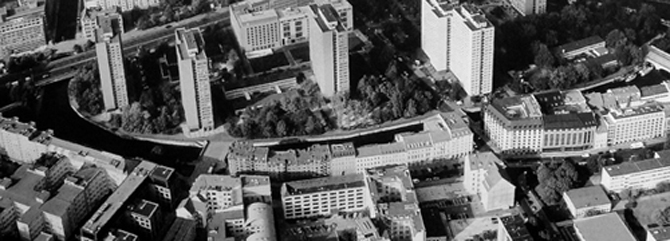Berlage Institute
28 March - 2 April 2010
1 - 9 November 2009

What does it mean to work in cities today? In the beginning of the twenty-first century, the combination of existing facts, novel ideas, value shifts, and significant inventions have changed the way we work and live. A new spatial organization of our society and economy has shifted the organisational principles of labour towards distributed and collaborative work simultaneously. The public and private, collective and individual—concepts that have been clearly distinguishable in the past—meld together, challenging the relationship between the privatised workspace and the civic realm. Workers have become experts operating in global time zones. They are passengers travelling through a wide space of ubiquitous accessibility. A new, global interconnectedness provides a multitude of cultural environments in which these workers can perform. The conditions of today’s city reveal the obsolescence of pure working typologies, like the Central Business Districts of the past. Instead, there is a need to develop new work-life typologies that can organize urban society in a way that promotes interaction and communication.
This second-year research studio will analyze the contemporary city’s daily work-life conditions and consider a re-organisation as a means of manifesting the future city. For our purposes, Berlin will play the character of an adaptable and complex protagonist in a turbulent story. It is a city that has been transformed by manifold political, social and economic conditions and events. As a capital, it has represented competing and multifarious power structures. As a cultural centre of both the present and the past, it has demonstrated a wide spectrum of customs and refinement, influenced by travellers, residents, customers, immigrants, and business people. With the eastern extension of the European Union in 2006, Berlin’s prominence has only increased, finding itself as a hub between East and West in the centre of Europe. Urban intervention will take the form of a new work-life quarter. Spaces of work, life, and other programs for a site in Berlin are subjects for alternative outcomes. Participants will investigate hybrid, political and institutional centralities of the city in spatial, cultural and economic terms. In this context, we can explore radical new forms of workspace architecture for a twenty-first century information economy.
Studio Coordinator: Dietmar Leyk
Guest Speakers & Critics: Nicolas de Benoist (Steelcase), Raphael Gielgen (Steelcase), Robert Mokosch (Steelcase)

